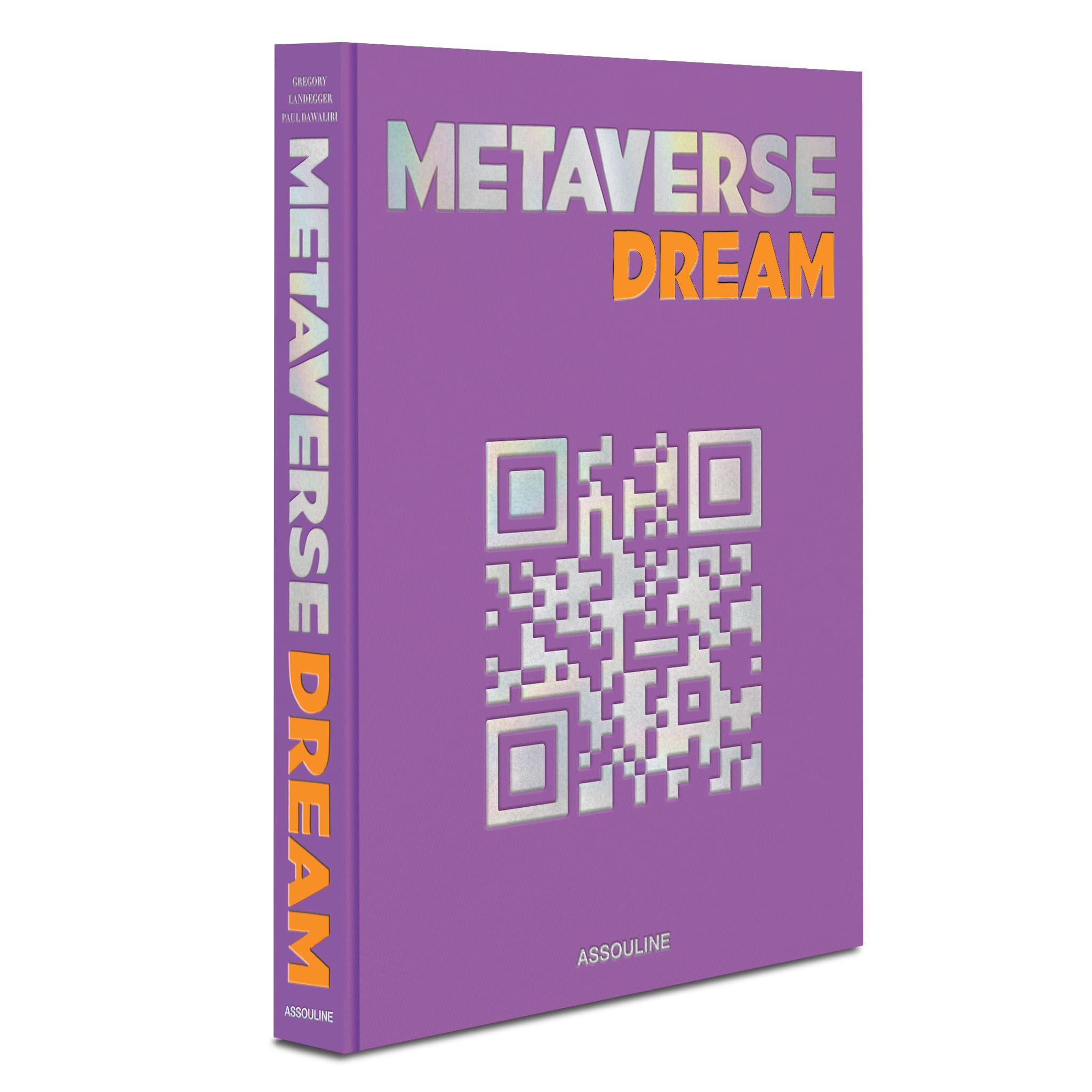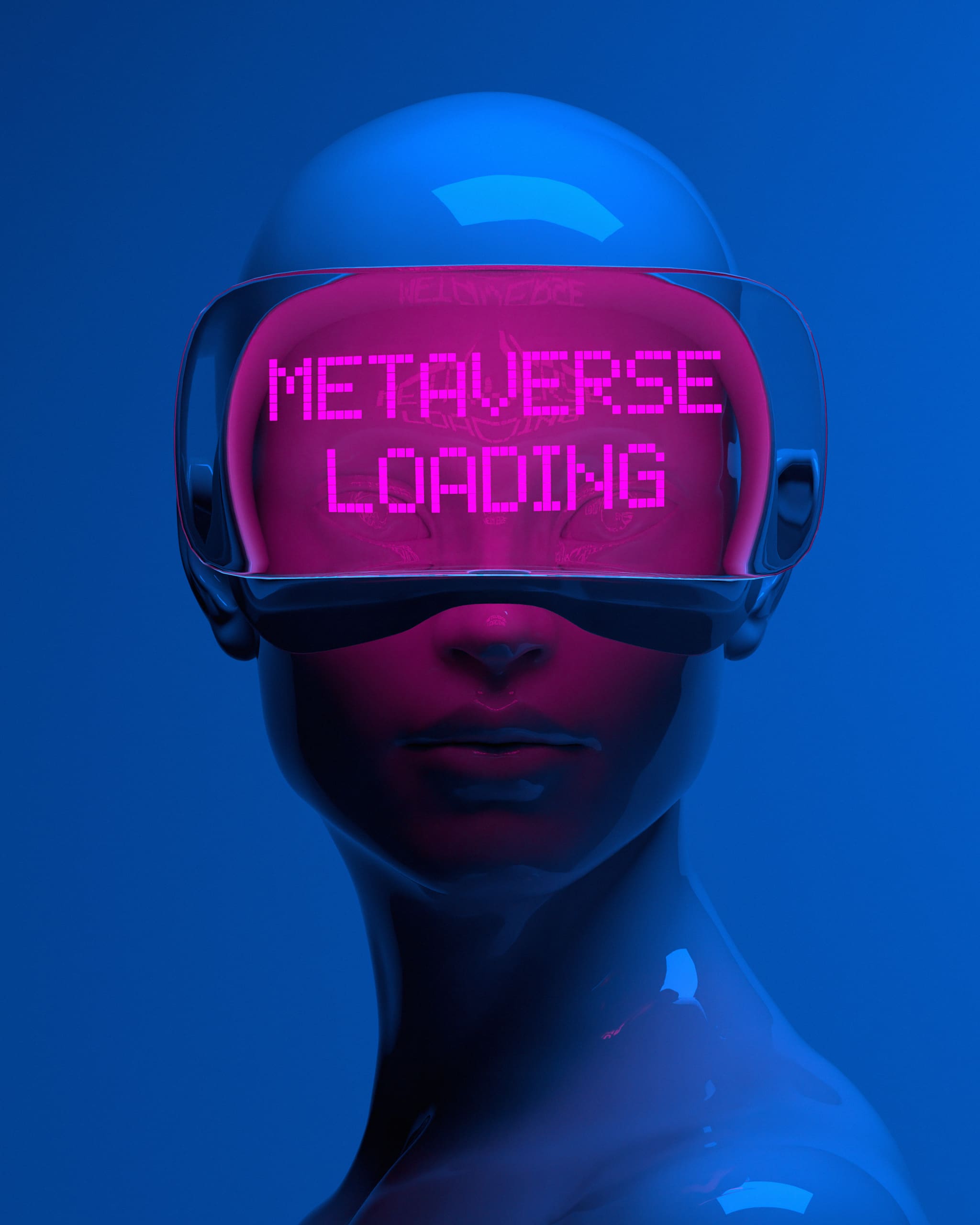Getty Images
Metaverse Dream offers a glimpse into the limitless possibilities of hyper-digitized tourism.
When the world came to a standstill in the early days of the pandemic, global tourism took one of the heaviest hits. Canceled flights, travel restrictions, and a crippling fear of the looming coronavirus paralyzed an industry that once made up over 10% of the global GDP. Since then, travel has regained its rhythm, with this year poised to usher in big changes—but perhaps not in the way most of us expect.
2023 has been dubbed the year that travel will take to the metaverse. Vastly different from traditional modes of travel, the digitization of globetrotting will allow us to explore even the most distant destinations without having to walk out the door. This imminent augmentation of the travel experience is the focus of Metaverse Dream, the first travel book of its kind from luxury publisher, Assouline.
“In the short term, the metaverse will allow people to explore destinations before spending much bigger dollars on real-world travel,” says tech entrepreneur and Holodeck Media CEO, Paul Dawalibi, who co-wrote the book with technology investor Gregory Landegger.
Dawalibi adds that in a decade’s time, metaverse travel will be much more than just an affordable alternative. As digital experiences become more immersive, they could very well become the norm. He explains, “Metaverse travel will enable experiences that real-world travel never could. Anyone can go to Egypt and visit the pyramids, but in the metaverse, you could climb them!”

Reshaping Reality
As with all novelties, discussions about the metaverse invite a spectrum of disparate reactions. This transition from the corporeal to the hyper-digital can understandably instill an inevitable paranoia, especially when concepts like cryptocurrency and non-fungible tokens remain stuck in a tug-of-war of the public conscience.
“I think it’s important not to confuse NFTs, digital ownership, crypto, and blockchain with the metaverse. The metaverse can exist without any of those things,” says Dawalibi. “The metaverse is a brand new world that we will inhabit, one not bound by our physical reality.”
Reservations of intangibility and ownership aside, there remain other reasons for disquiet. One of the largest concerns lies in the fear that a fully digitized world will lead to eventual disengagement from the physical realm. It’s a fearful story that’s been portrayed a thousand times over in pop culture. From Pixar’s Wall-E to Black Mirror, we’ve been told time and again that chaining our lives to a screen is a recipe for disaster.
However, Dawalibi offers another perspective. “If the metaverse that we create has more pull than the real world, then I’d say we have achieved success. If we can escape to the metaverse without our brains realizing it, then humanity has evolved beyond our current limitations,” he says.

Destination: Metaverse
While the future promised by this new digital world is still in the works, the concept has persisted for decades. The term “metaverse” first emerged in Neal Stephenson’s 1992 science-fiction novel, Snow Crash. Since then, the notions of what a metaverse is and what it can be have expanded exponentially. These ideas have been introduced and amplified across various industries and formats, but with its rich portraiture and unique visuals, Metaverse Dream is the first book of its kind.
“This format makes the concept of metaverse more accessible to the public,” explains Dawalibi. “The book also reinforces the idea of the metaverse as a destination—somewhere we will inevitably spend a lot of time visiting or inhabiting.”
According to Martine Assouline, co-founder of Assouline, publishing a travel volume like Metaverse Dream is all about taking readers on an adventure—one where imagination and technology fuse and merge in symbiosis. “The goal was to mix reality and dreams,” she says. “I’ve always thought that you learn while dreaming. Pleasure and delight go hand-in-hand with knowledge.”

A riveting virtual experience awaits readers of Metaverse Dream. By scanning the QR code on the book’s cover, readers will be transported to Assouline’s digital storefront in Decentraland, where they can peruse the publisher’s diverse range of titles. Readers will also have the opportunity to visit the FastEx Verse, a metaverse museum where they can take a deeper, more immersive look at the worlds presented within its pages.
- Brooklyn-Based Architect Carlos Arnaiz Has A Guiding Vision For His Brand—And The Country
- Brooklyn-Based Architect Carlos Arnaiz Has A Guiding Vision For His Brand—And The Country
- 12 Underrated Wine Regions to Visit According to Experts
- Silverlens Makes A Home For Filipino And Southeast Asian Contemporary Art In New York City
